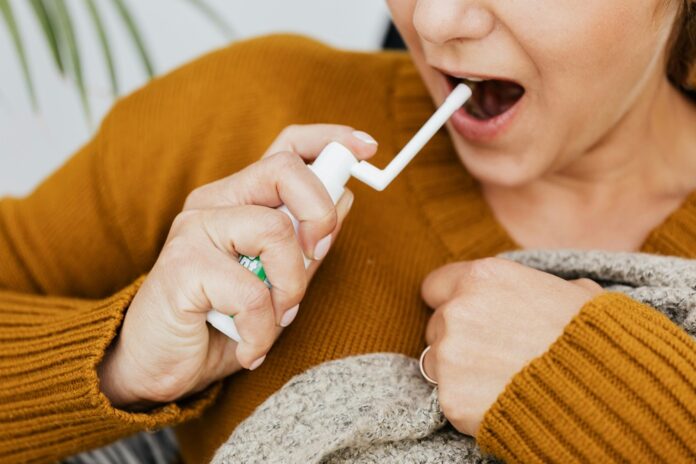Dry mouth, or xerostomia, is more than just a minor annoyance. It’s a common condition that affects many individuals, leading to discomfort and sometimes more serious oral health issues. It’s essential to understand the causes, effects, and relief options available to effectively manage this condition.
What Causes Dry Mouth?
Several factors can contribute to dry mouth, ranging from medical conditions to lifestyle choices:
Medications
A variety of prescription and over-the-counter medications can lead to dry mouth as a potential side effect. Antihistamines, commonly used for allergies, and decongestants for nasal congestion, can disrupt normal saliva flow. Additionally, certain pain medications can contribute to this uncomfortable condition, making it important for individuals to consult with healthcare providers about potential side effects when starting new treatments.
Medical Conditions
Various medical conditions can significantly impact saliva production, leading to chronic dry mouth. For example, diabetes can cause dehydration and increase blood sugar levels, which in turn can reduce saliva output. Sjögren’s syndrome, an autoimmune disorder, specifically targets the glands that produce saliva and tears. Parkinson’s disease can also interfere with the nervous system’s ability to regulate saliva production, highlighting the need for targeted management strategies for affected individuals.
Lifestyle Factors
Certain lifestyle choices can worsen dry mouth symptoms, making it crucial for individuals to be mindful of their habits. Smoking or chewing tobacco not only harms overall health but also reduces saliva production, exacerbating dryness. Similarly, consuming alcohol and caffeinated beverages can contribute to dehydration, while inadequate water intake or excessive sweating further diminishes the body’s ability to produce saliva. This underscores the importance of hydration for maintaining oral health.
Aging
The natural aging process often leads to a decrease in saliva production, which can result in dry mouth for many older adults. This reduction may be compounded by the increasing use of various medications common in this age group, which can have drying side effects. As a result, older individuals may need to implement specific strategies to combat dry mouth, such as staying well-hydrated and seeking alternatives to medications that contribute to this issue.
Effects of Dry Mouth
The impact of dry mouth extends beyond a mere sensation of dryness. It can significantly affect oral health and overall well-being:
- Oral Health Issues: Increased plaque, tooth decay, and gum disease due to lack of saliva.
- Difficulty Swallowing and Speaking: Challenges in swallowing and speaking clearly.
- Altered Taste: Reduced enjoyment of food.
- Mouth Sores and Cracks: Increased risk of infection from dryness.
Relief Options for Dry Mouth
Effectively managing dry mouth involves a combination of lifestyle changes, medical advice, and the use of specialized products:
Hydration
Drinking plenty of water throughout the day is crucial for maintaining moisture in the mouth and overall health. Sipping water regularly not only helps keep the mouth wet but also supports vital bodily functions, including digestion and circulation. It’s essential to listen to your body and drink water before you feel thirsty, as thirst is often a sign of dehydration.
Humidifiers
Using a humidifier, particularly at night while you sleep, can significantly improve the moisture levels in your environment. This added humidity can alleviate the dryness that many people experience during sleep, promoting better comfort and quality of rest. Investing in a humidifier can be a simple yet effective solution for those suffering from dry mouth, especially in drier climates or during winter months.
Dietary Adjustments
Making certain dietary adjustments can play a key role in minimizing dry mouth symptoms. Avoiding caffeine, alcohol, and tobacco is important, as these substances can contribute to dehydration and exacerbate dryness. Additionally, incorporating juicy fruits and vegetables like watermelon, oranges, and cucumbers into your diet can enhance saliva production, which is vital for maintaining oral health and comfort.
Saliva Substitutes
Over-the-counter saliva substitutes offer a practical solution for those experiencing dry mouth. These products are designed to mimic the natural moisture of the mouth, providing temporary relief and comfort when needed. They come in various forms, such as sprays, gels, or lozenges, allowing you to choose the option that best fits your lifestyle and preferences.
Dry Mouth Relief Oral Rinse
Incorporating a specialized oral rinse designed for dry mouth relief can be highly beneficial. These rinses help maintain moisture, protect against cavities, and freshen breath. Learn more about how Dry Mouth Relief Oral Rinse can be an easy and effective addition to your daily oral care routine, helping you manage symptoms and support oral health.
Gaining a clear understanding of dry mouth and its implications is the crucial first step toward providing effective care. By identifying the causes and recognizing the effects, individuals can take proactive measures to alleviate symptoms and improve their quality of life. With the right combination of lifestyle adjustments and the use of specialized oral care products, relief from dry mouth is within reach.















